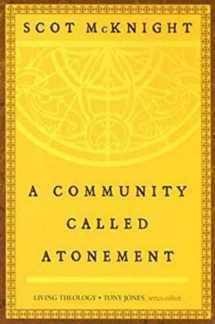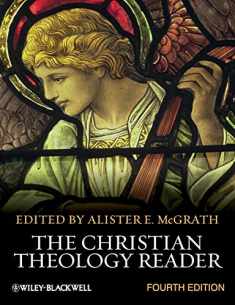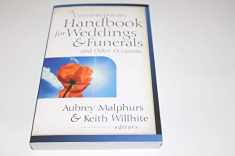
A Community Called Atonement (Living Theology)
Book details
Summary
Description
Theological resources for the emerging church. In the last few years, what may broadly be called “the emerging church” has called on the wider church to engage in fresh thinking about how to present the gospel of Jesus Christ to postmodern culture and the world. Far from being a monolithic organization, the emerging church may be described more accurately as an international conversation among pastors, church leaders, and other interested persons from across the theological and denominational spectrum who are learning to cherish what they have in common (and sometimes what they don’t have in common) with friends from other traditions, helping each other to embody Jesus Christ in particular ways suited to particular contexts. Indeed, the emerging church sees this fellowship as a powerful witness to the unity of the body of Christ. One of the leading voices and catalysts of conversation in the emerging church is the group organized around the name Emergent, which calls itself “a growing generative friendship among missional Christian leaders seeking to love our world in the Spirit of Jesus Christ.” The burden of Emergent’s publishing work to date has been to call attention to the cultural changes effected by the (ongoing) shift from modernity to postmodernity, as well as to ask how an institutional church shaped by modernity may best reach postmodern culture. A distinguishing mark of Emergent, and the emerging church as a whole, is its willingness to draw on a wide variety of theological voices in its mutual conversation, engaging in theology primarily for the church instead of the academy. This willingness is demonstrated most notably, thus far, by the work of Brian McLaren. However, McLaren hardly represents the final theological word in the emerging church, and for him to be seen in such a way would be antithetical to the values of the emerging church conversation.The purpose of an “Emergent theology” series, then, is to provide theological resources to help the emerging church enrich the dialogue currently taking place as well as to invite the wider church into the conversation. These resources will address an array of subjects whose traditional home has been the academy. For example, topics as diverse as the Trinity or the nature of salvation, or areas within biblical studies, church history, and practical theology are all potential candidates for the series. The audience of the series will be pastors, church leaders, theological educators and students, and anyone interested in the emerging church conversation. The books will not be primers on the subjects they address; neither will they be pitched so high and contain so much jargon that only academic theologians will understand them. Instead, because this series will be theology for the church, which may be done in either a classroom or a local church setting, each book be will be both challenging and accessibly written, with a particular emphasis on showing how the topic at hand may bear fruit for the church in a postmodern context. Any given book in the series could serve as a supplemental text in college and seminary classes; or it might be used equally as well as the basis for a small group study. Tony Jones is the National Coordinator for Emergent and is finishing a PhD in Practical Theology at Princeton Theological Seminary. Author: Scot McKnight


We would LOVE it if you could help us and other readers by reviewing the book
Book review





